
Snow Falls In Colorado Just 48 Hours After A Record Heatwave And It Proves Nothing Is Impossible In 2020
The weather is going crazy in Colorado. You wouldn’t think that just a couple of days could bring about such radical changes, but locals are puzzled over what an unusual 48 hours they had this week: they went from scorching heat to snow!
The Colorado Climate Center states that a station in the state’s southeastern part reported 104 degrees Fahrenheit (40 degrees Celsius) on September 6 and 3.9 inches (9.9 centimeters) of snow just 48 hours later. Of course, the amount of snow varied from area to area: some places got just an inch while others marveled at nearly a foot of it.
Meanwhile, locals reported massive temperature swings (huge drops of 60 to 70 degrees Fahrenheit aka 15.5 to 21 degrees Celsius) in just under a day. Now, they’re posting photos showing just how different Colorado became: from Apocalyptically red and orange skies to a Christmasy frosty vibe. Worried and confused about the climate? So are we.
The Director of the Colorado Climate Center, Russ Schumacher, was kind enough to explain the sudden temperature swings to Bored Panda in detail. “We were under a huge ridge of high pressure across the western US for the first week of September, and then a very strong low-pressure system plunged southward along the east side of that high pressure, bringing very cold air southward. That high-pressure ridge remains over the west coast and is contributing to the unprecedented fires in California and Oregon, while we’ve been setting records for early snow and cold,” he said. Read on for the full interview.
One Day Difference In Fort Collins Colorado
Image credits: reddit.com
Image credits: LukeRunyon
Image credits: ShannonAberton
#NoCo yesterday vs today!! Yesterday, apocalyptic ash, today #snow Praise #MotherNature for this, hopefully will help squash our fires! #cowx@MattMakens@CReppWx@KathySabine9#ColoradoFires#ColoradoSnow#coloradoweather#CameronPeakFirepic.twitter.com/9ZA3Lu9XW1
— Lisa Hewitt (@COplantlady) September 8, 2020
Image credits: COplantlady
Image credits: SummitLegacy
Image credits: bgordonphotogr1
Image credits: anak_kobakma
Image credits: robertsonaaron
Image credits: WalshCBS4
Image credits: cortneypalm5
Image credits: auntwanne
Image credits: ColoradoClimate
Image credits: ColoradoClimate
Image credits: ColoradoClimate
Image credits: ColoradoClimate
Image credits: ColoradoClimate
Image credits: ColoradoClimate
Image credits: ColoradoClimate
Image credits: NWSBoulder
“We’re accustomed to abrupt temperature changes with strong cold fronts—areas east of the Rocky Mountains from South Dakota down through Wyoming, Colorado, New Mexico, and Texas, experience some of the strongest cold fronts in the world. But even with that in mind, what happened this week stands out, for a couple of reasons,” Schumacher told Bored Panda.
“One is how early it happened: the biggest temperature swings usually happen later in the fall or in the winter. For example, the list of largest 2-day temperature changes in Denver are mostly in October through February. This week’s change (66F in 2 days at Denver) doesn’t rank among the top changes all-time, but it was the largest ever for September,” he said.
“The other notable aspect is that we started from record-hot conditions: almost everywhere in the state had their hottest day for so late in the year on either Saturday the 5th or Sunday the 6th (or both), including a new statewide record for September (108F in La Junta on Sunday the 6th). Then many of those same places were snowing 2 days later, in many places the earliest snow on record. Here in Fort Collins where I’m based, the previous shortest time between 99F and 32F was 30 days. This week, we made that drop in 2 days—the high of 99 on the 6th was the latest we’ve ever been at 99, and the snow on the 8th was the earliest snow on record.”
The precipitation was very welcome, but not enough to provide real drought relief
According to climatologist Schumacher, the snow turned out to be primarily positive and a welcome respite. “The Cameron Peak fire in northern Colorado, which had tripled in size over the weekend to become the 4th largest in state history, received around a foot of snow, which helped stop the growth of the fire. And in most places, it didn’t get as cold as we were worried about, so the impacts on plants weren’t quite as bad as feared. After an extremely hot, dry summer, this precipitation is very welcome, but it will really only prevent the drought from getting worse for a while, rather than actually provide a lot of lasting relief. We’ll need persistent precipitation over a longer period of time to provide real drought relief.”
Assistant state climatologist Becky Bolinger said this was truly something she had never seen before. She’s right because the weather has been setting new records. Colorado hasn’t seen snow accumulate so early in over 130 years. Meanwhile, the state also hasn’t ever seen such high temperatures either so late in September.
Alaska-based climatologist Brian Brettschneider said that it’s not impossible to have 80 degrees Fahrenheit (26.6 degrees Celcius) one day and snow the next. However, when temperatures rise above this level, the story is different. “Once you start ticking that temperature up and you’re talking about it in the 90s and snowing shortly thereafter, then the number of instances drops dramatically,” the expert told NPR.
Meanwhile, the National Weather Service had advised cattle ranchers to provide their animals with protection from the cold.
The snow couldn’t have come at a better time. 92 percent of Colorado is experiencing severe drought while more than half the state has extreme drought. So any extra moisture is a godsend.
Here’s how internet users reacted to the massive temperature swings in Colorado
36Kviews
Share on FacebookWe all better get used to things like that. The 'never seen' before or 'never in hundred years of record' are going to become pretty common.
We all better get used to things like that. The 'never seen' before or 'never in hundred years of record' are going to become pretty common.

 Dark Mode
Dark Mode 

 No fees, cancel anytime
No fees, cancel anytime 



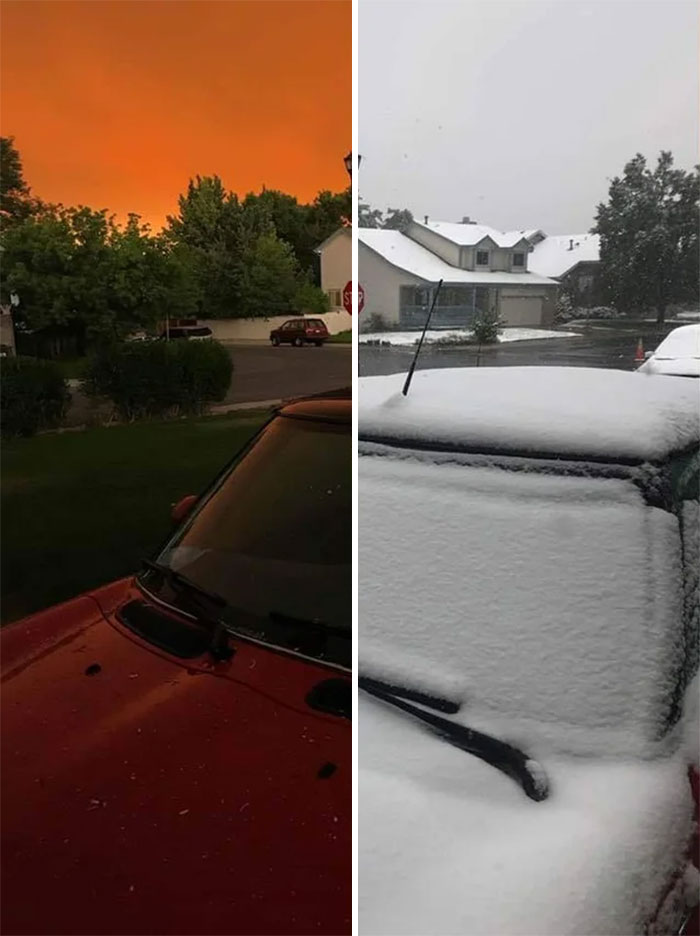
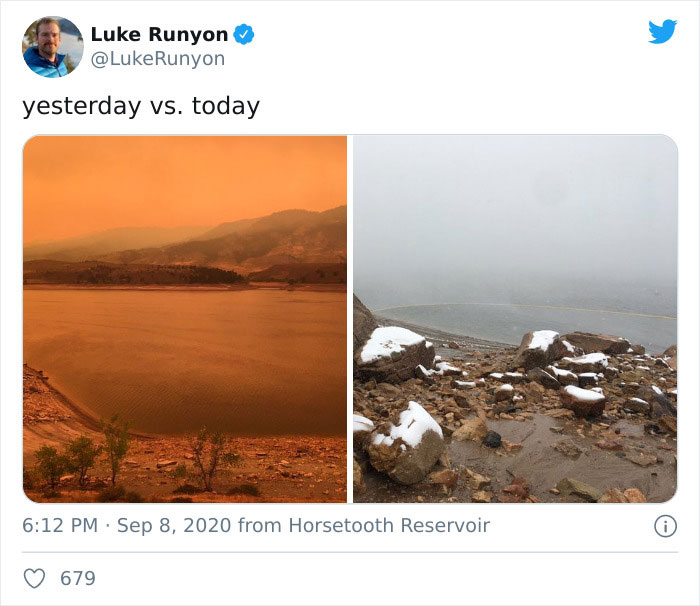
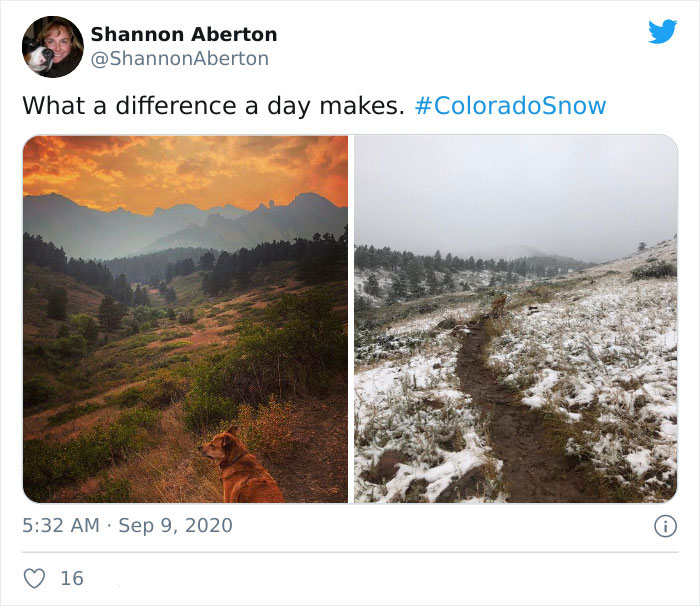
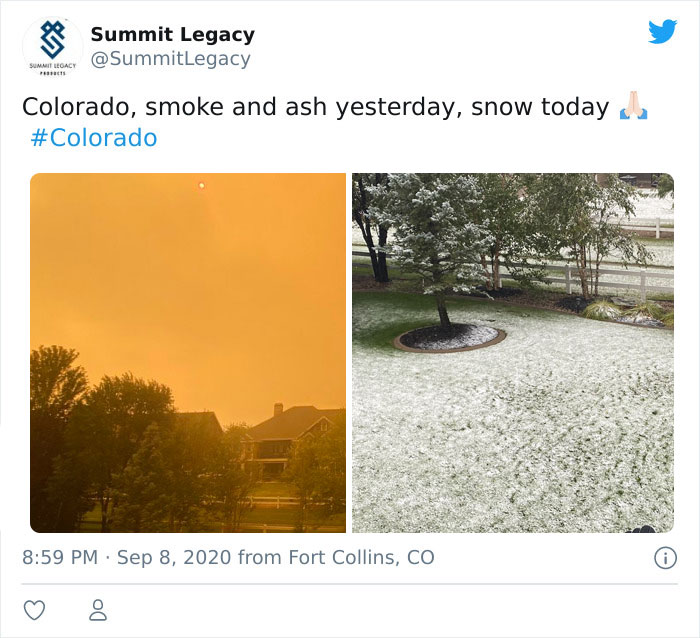
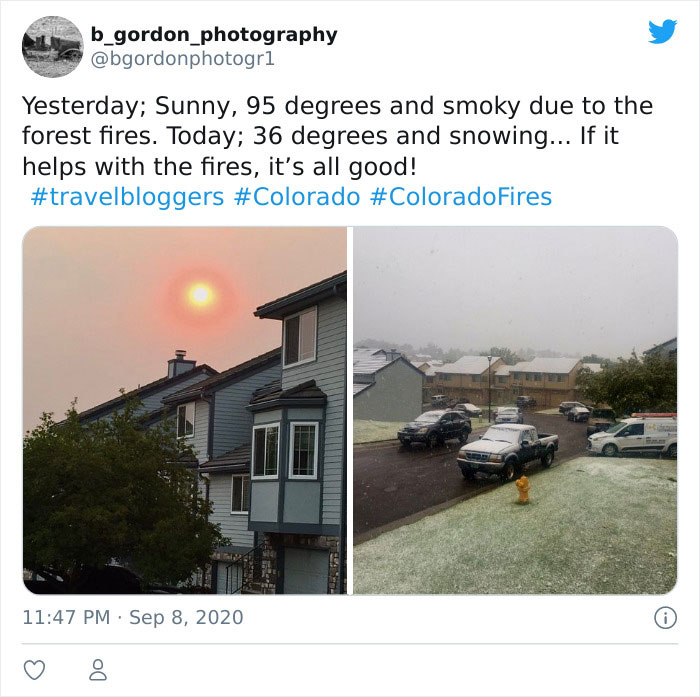
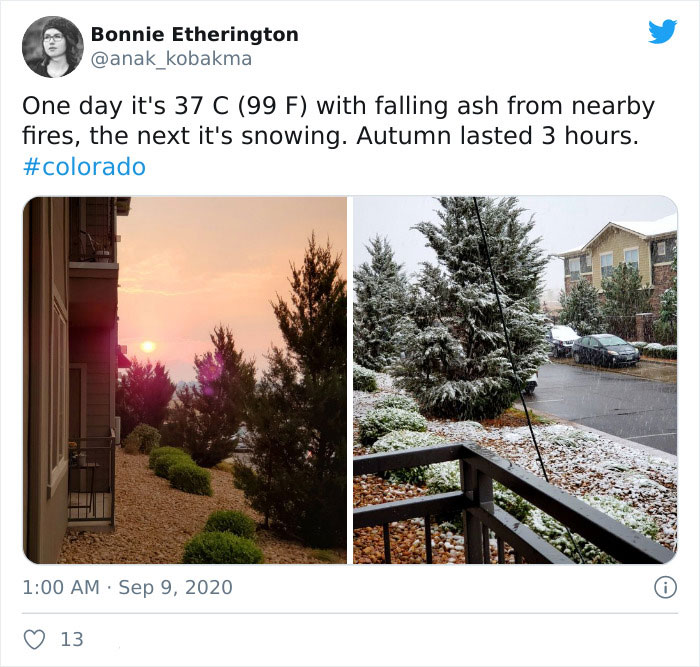
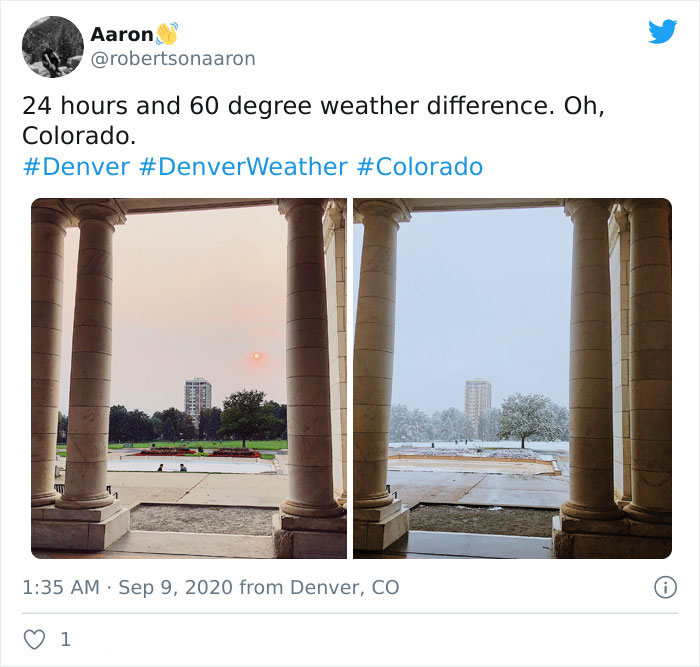
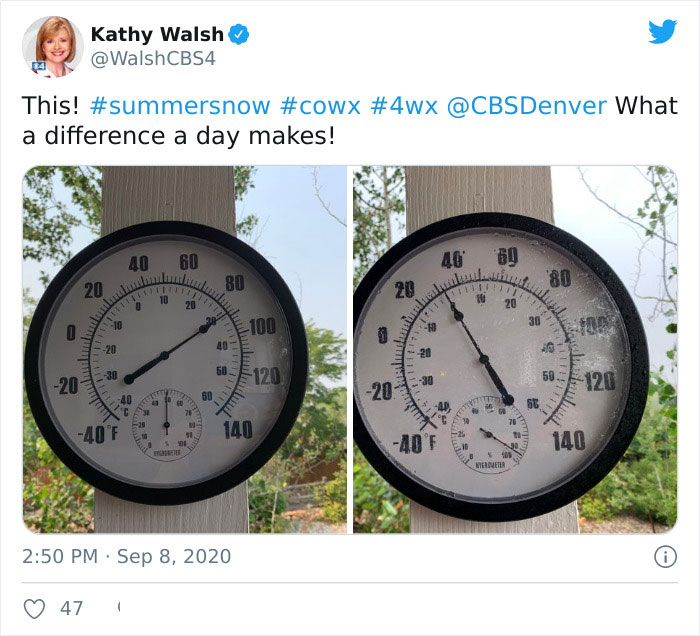
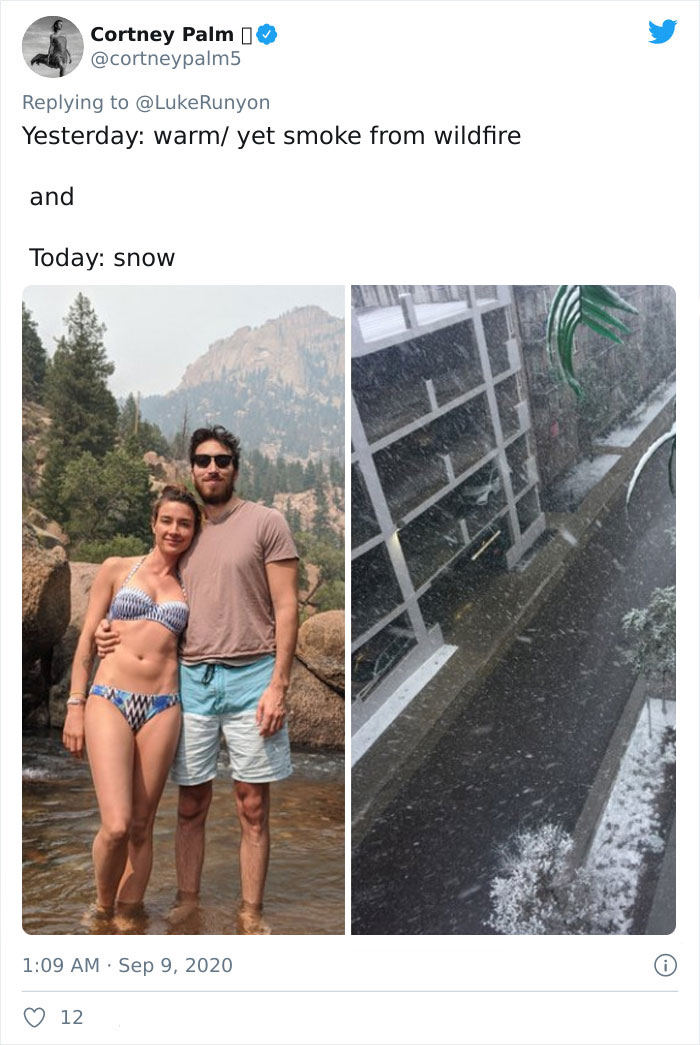
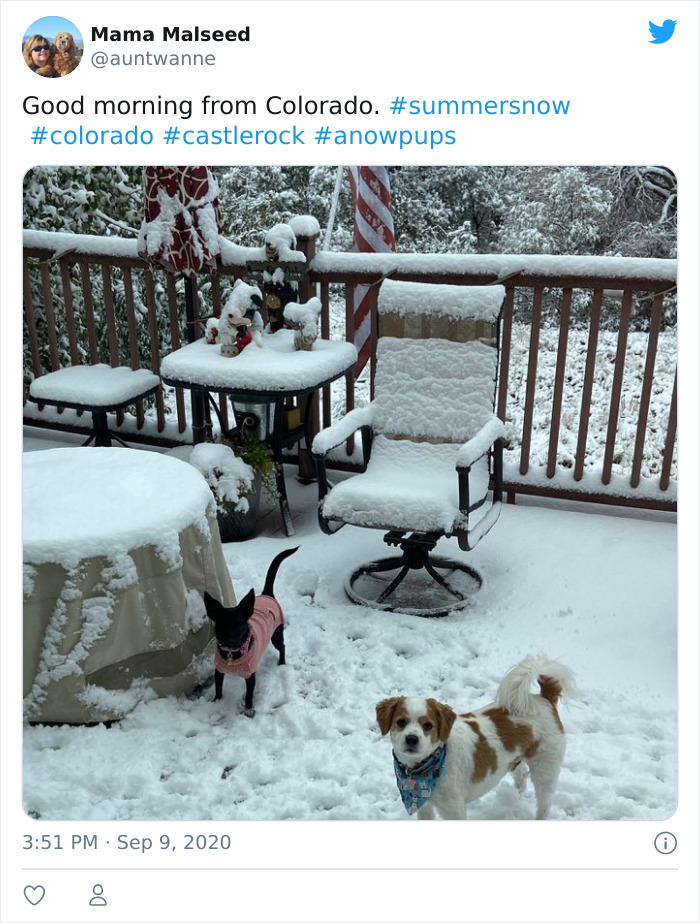
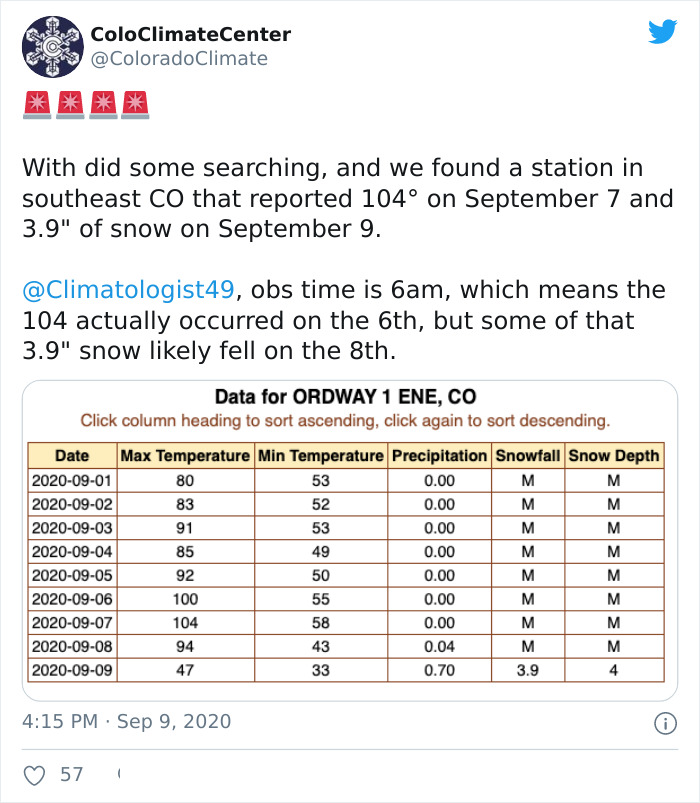
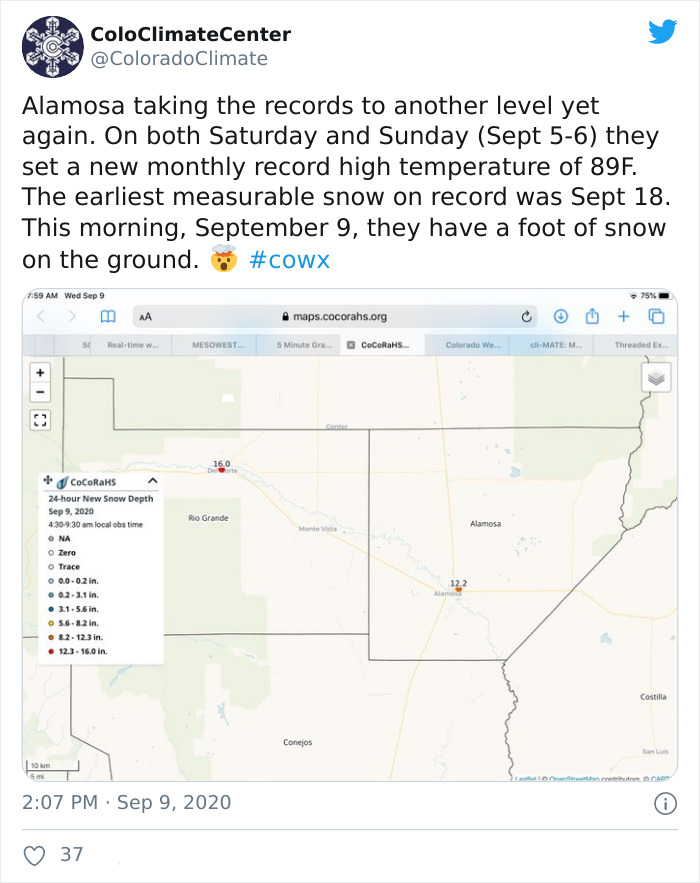
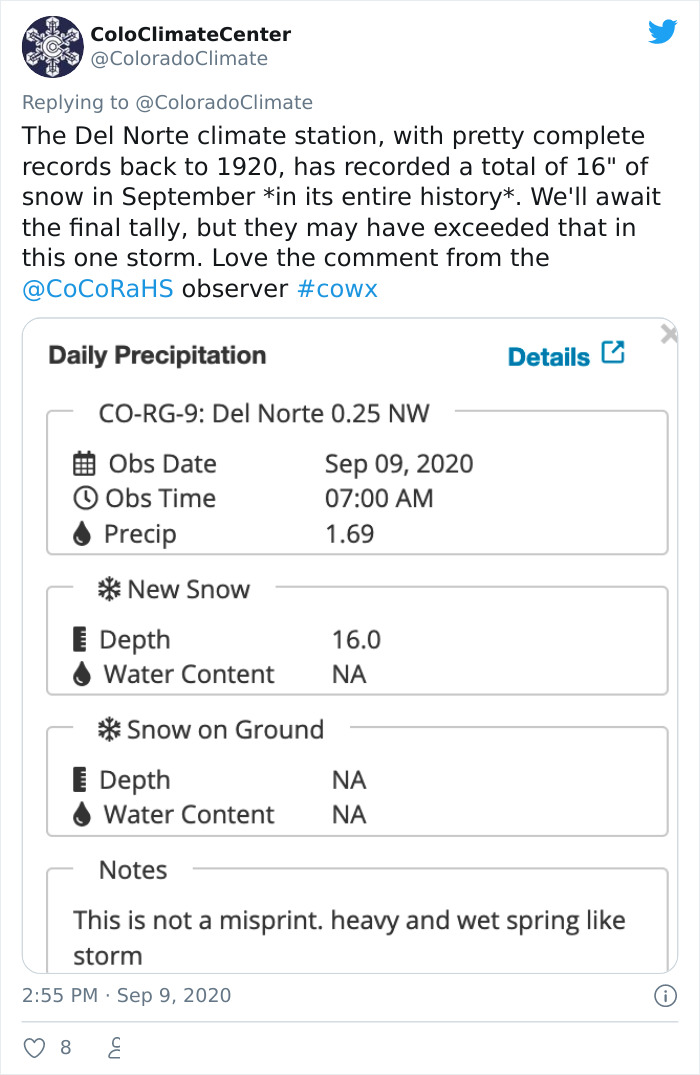
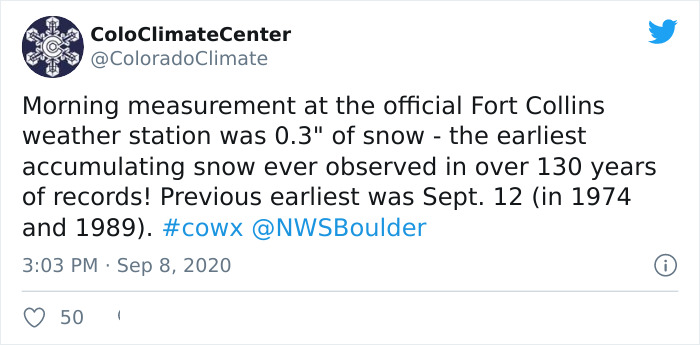
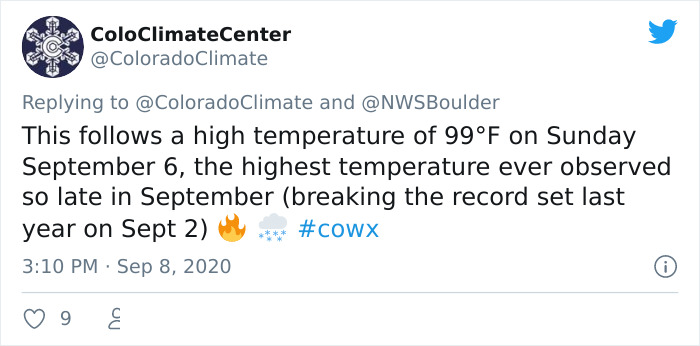
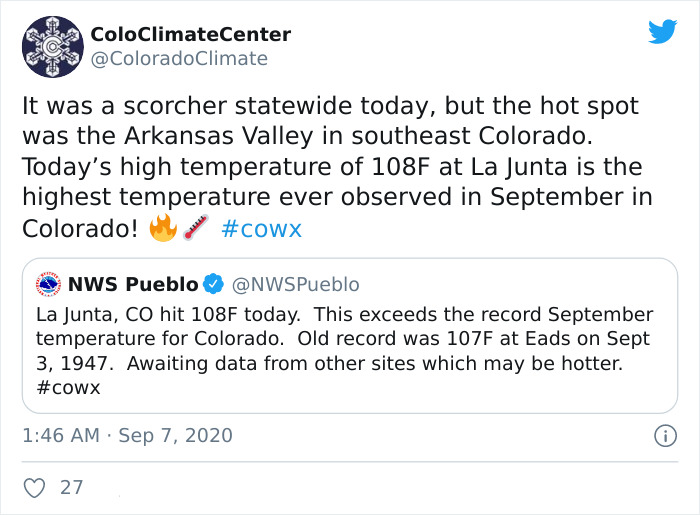
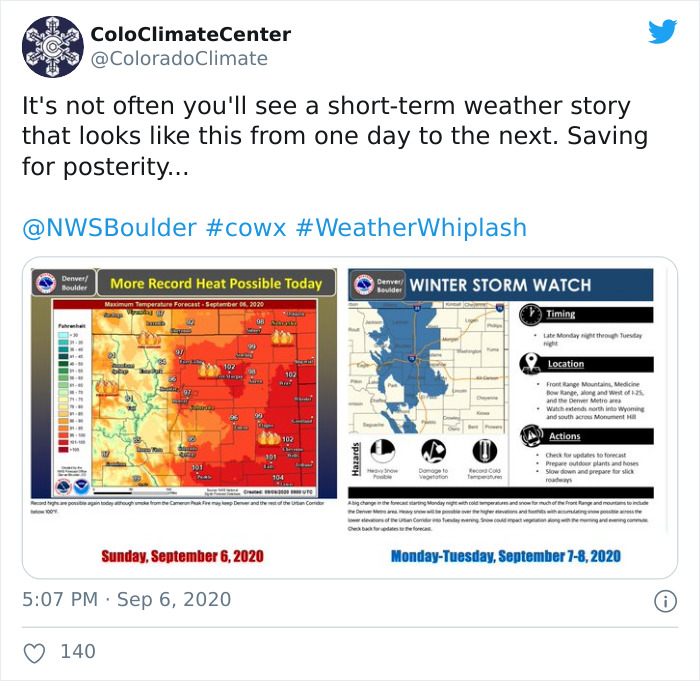
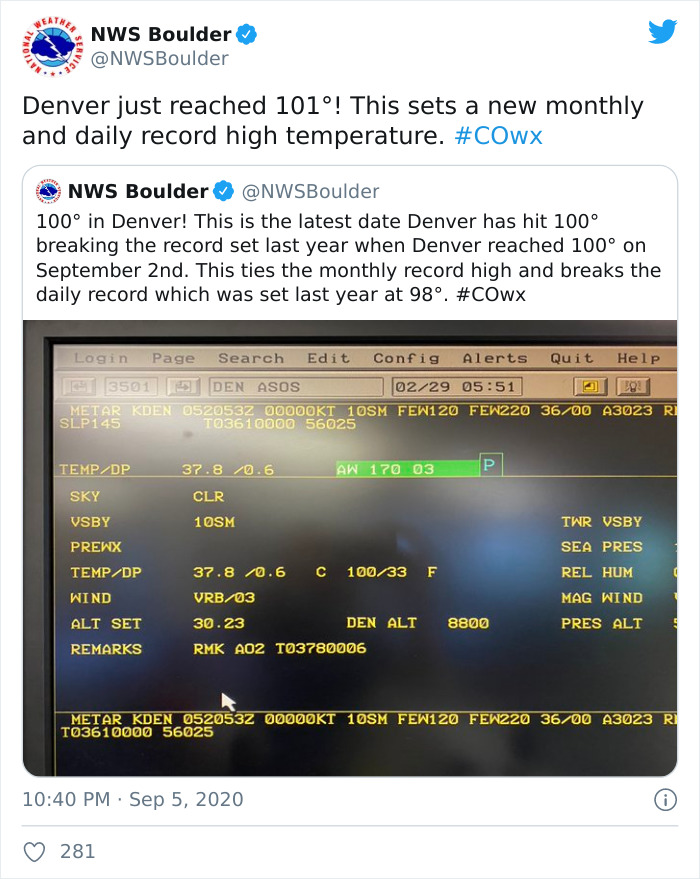

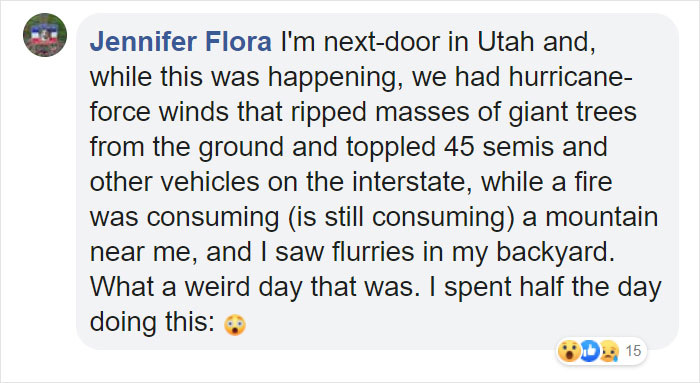









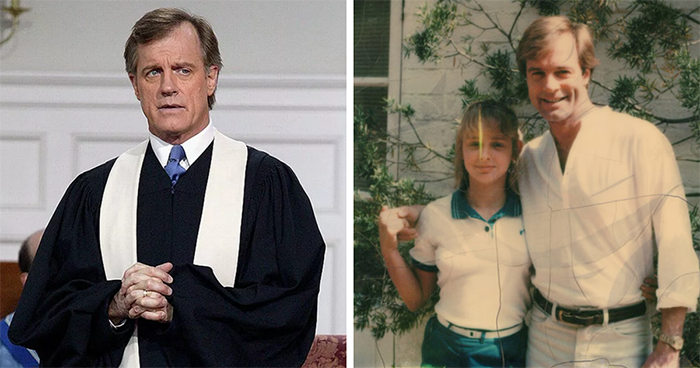




















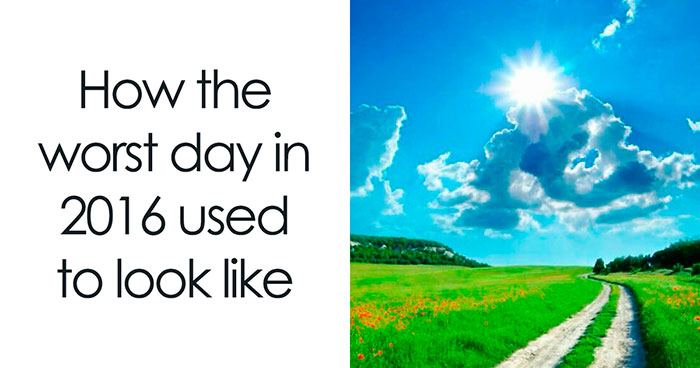
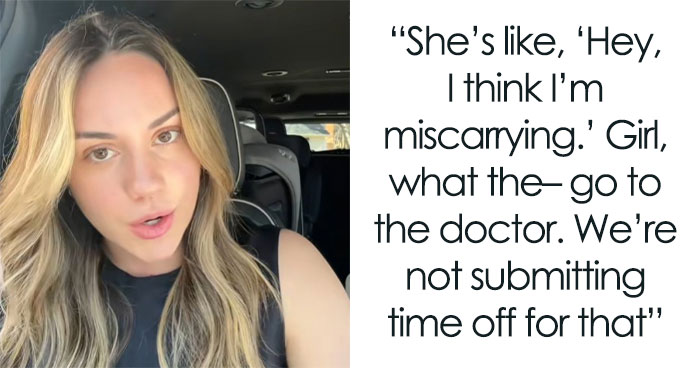
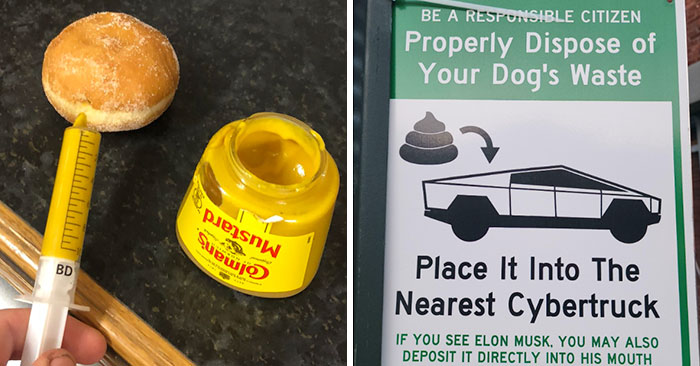





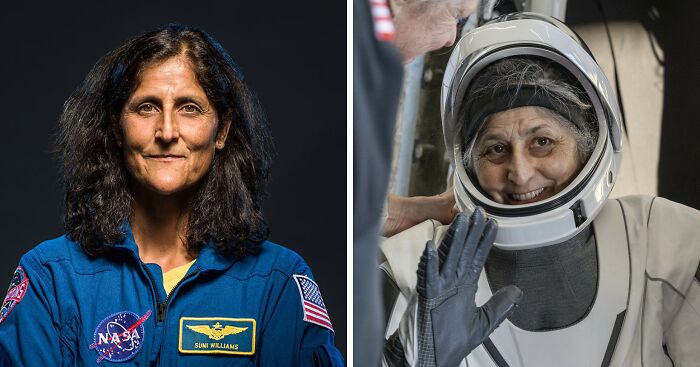
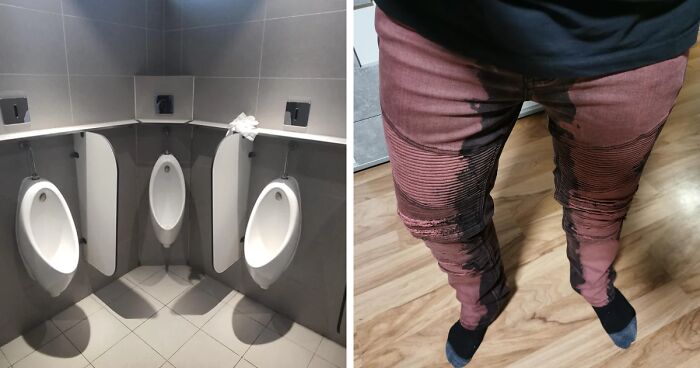

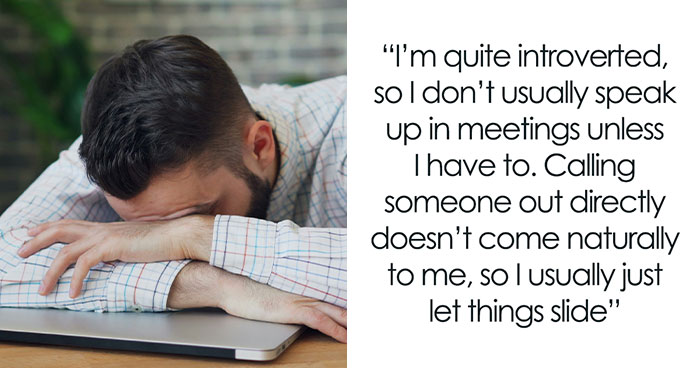
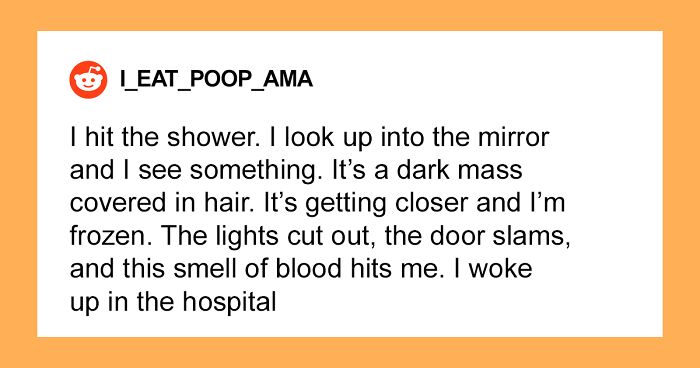
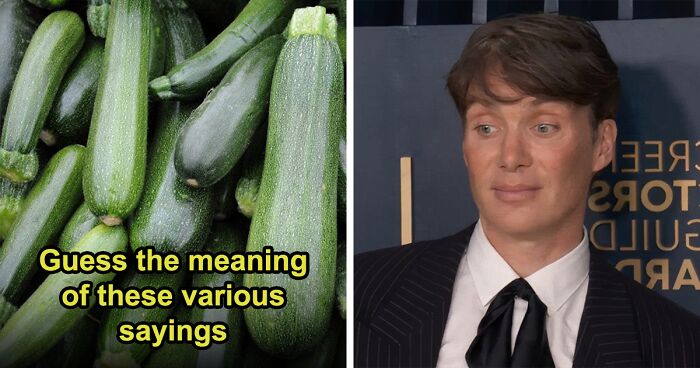
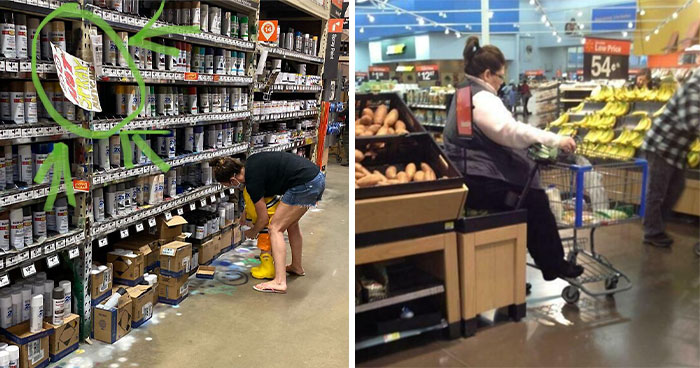

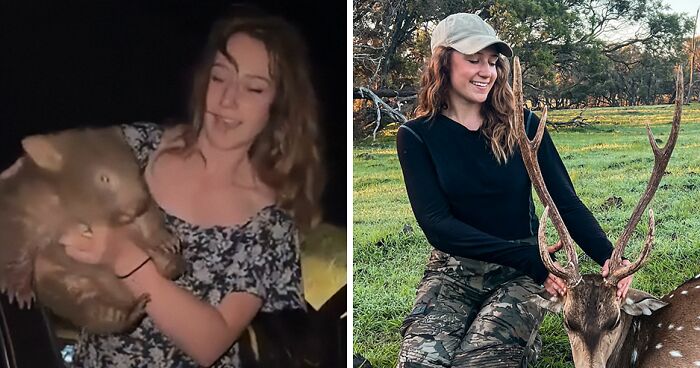

173
30